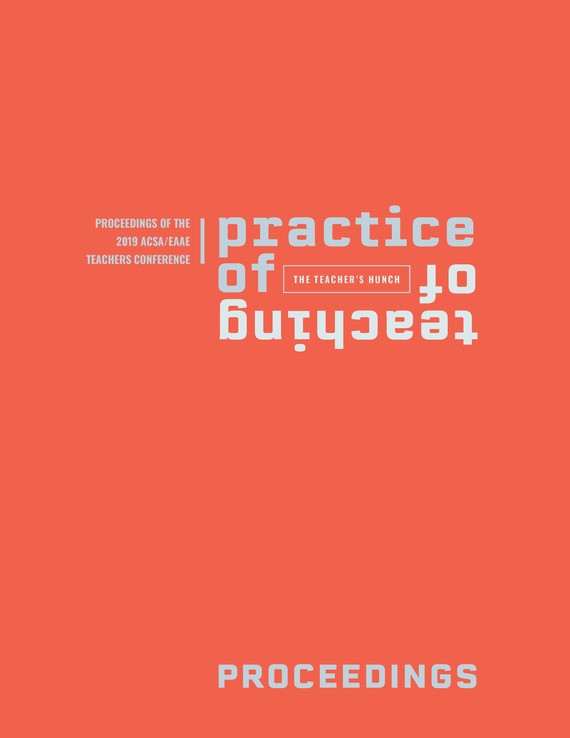Author(s): Adam Modesitt
It is a truism, perhaps, that architectural education should not merely teach tools, vocationally. Architectural education should prioritize conceptual development, interpretive skills, and critical thinking alongside calisthenic exercises in precision, craft, and rigor. The field of architecture however, continues to adopt an expanding array new mediums, predominantly computational and digital, of increasing complexity. Moreover, facility with new digital tools increasingly serves as a perquisite for entry contemporary architectural practice, presenting urgent questions and challenges for foundational architectural education. Architectural education, especially foundational pedagogy, must impart the fundamentals and simultaneously prepare students for the onset professional practice in which they will face an expanding, fragmented landscape of new architectural tools and mediums.Critical questions for foundational pedagogy include the degree to which tool instruction and shoptalk is positioned within the studio environment. Is pedagogy strengthened by the integration of tool instruction within the studio, or should it be siloed outside in dedicated courses? Among new mediums, which best serve as vehicles for imparting design principles? Which modes of production, historically established or new and experimental, best prepare students for professional practice? Does a focused, targeted adoption of specific tools foster conceptual development, or should a wide-range of tools be sampled? Lastly, amid these questions, where can students find space to experiment, assume risk, and begin to establish their own positions?This paper proposes a pedagogical framework for situating these questions within a foundational architecture studio and presents results from a new core curriculum at the Tulane School of Architecture, in New Orleans. A seminal foundational studio pedagogy developed a decade ago at the school is revisited and reappraised in the context of the revised curriculum. Current and past curricula-la share common roots and goals, but diverge in technique, meth-od, and process. Lesson structures similar to the past curricula were adopted in the current pedagogy to facilitate systematic comparisons between approaches and make legible new outcomes. Development of core studio foundational pedagogy necessitates a clear stance on the role of tool instruction within the studio, a pressing challenge in the context of an increasingly fragmented landscape of tools, techniques, and mediums. The new pedagogy at the Tulane School of Architecture embraces this context, and positions the friction generated amidst the application of multiple tools and mediums as a primary site for architectural invention and critical development.
https://doi.org/10.35483/ACSA.Teach.2019.18
Volume Editors
Richard Blythe & Johan De Walsche
ISBN
978-1-944214-23-4

 Study Architecture
Study Architecture  ProPEL
ProPEL 
